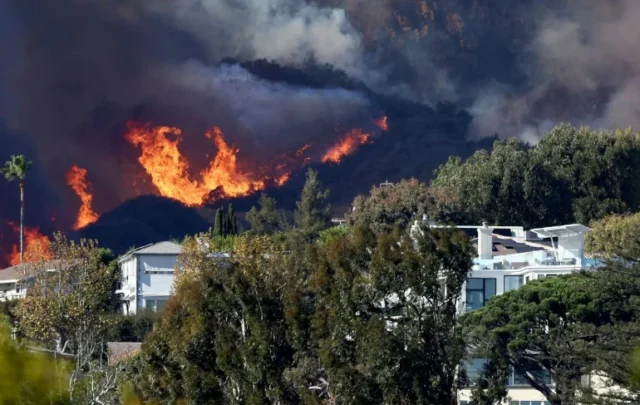Young people today find themselves on the front line of a rapidly changing world. Whether actively engaged with climate issues or not, these issues will undoubtedly and profoundly shape their futures, quality of life and inner worlds. Witnessing the escalating environmental crisis unfold in real time alongside their personal growth and development, can make these challenges feel overwhelming. With 84% of young people aged 16-25 in the UK worried about climate change and 59% reporting that it affects their daily lives (The Lancet Planetary Health, 2020) it’s crucial that movements such as Transition strive to place young people at their heart, building supportive and empowering pathways to navigate these turbulent times together.
The charity LIFEbeat is dedicated to crafting such pathways for positive change. Through residential summer camps, they work to transform young lives by fostering safe, intergenerational and diverse communities where healing, learning and thriving happen collectively. Their mission aligns poignantly with that of the Transition movement: to foster local connections, build sustainable, equitable communities and support individuals to live with autonomy.
After a powerful two-day Creative Practice training run by LIFEbeat in my Cornish hometown, I was inspired to become a volunteer at their South West camp this August. I approached the camp with curiosity, spurred on by my firm belief in the arts’ transformative power and poignance in the emerging era of climate crisis. Fuelled by this passion, I was engaged to initiate conversations on the Transition movement’s core themes, gaining insights into the emotions and experiences of young people navigating these turbulent times. Through a creative envisioning and photography workshop, youth co-facilitated group discussion and ongoing conversations I listened to and reflected on the hopes, fears and insights of the young community.

Young participants in the LIFEbeat Summer camp. Photo credit: Gani Naylor
Many young people today have navigated their entire lives in a society that champions and rewards hyper-individualism. Intergenerational movements such as the Transition Network and LIFEbeat build communities that weave together rich and varied perspectives. These united dialogues foster confidence and strengthen the capacity for autonomous action, providing a sanctuary where different generations can learn and grow together.
The camp united 30 staff members of all ages and 50 young people aged 14-18, with about half returning from previous years. Initially, the young participants were cautious, some hiding behind hoods, others sticking close to the walls. Yet remarkably, after just one day, barriers began to fall and new friendships blossomed, spurred on by the camp’s core principles of openness and non-judgment. Through a deeply intentional week of creative expression, reflective activities and open dialogue, the young attendees underwent a distinctive transformation. Soon, the community found itself in a vibrant dialogue, openly sharing their inner worlds, creative selves and visions for the future.
As these conversations progressed it became clear many felt a significant disconnect from climate change, despite many having strong relationships to nature. In the South West, green spaces are woven into the fabric of many young people’s lives, providing essential sanctuaries for reflection and mental well-being. One young woman, with a field and woodlands as her back garden, shared, “I don’t know where I’d be without it. I escape there when I need to clear my head. It keeps me sane.”
Yet climate change was commonly experienced as an “overwhelming” and alien concept. The vast scale and apparent inevitability of such “massive change” has made it an almost unfathomable topic, which was frequently referred to as being impossibly far “beyond our control”, particularly given the pressing challenges of daily life. Within a group discussion, one young man raised an unsettling but collective concern that “it’s too late… it won’t impact me, it won’t be my problem” and that “it won’t happen here (in the UK) for ages, by which time I’ll be dead anyway.” Within the group I was struck by recurring pessimism that “we might not do anything” in time, juxtaposed with the hope that “humans naturally fight to survive” and emerging technologies will eventually be brought to our rescue.

LIFEbeat values and creative approaches give space for young people to explore the challenges they face and find power. Photo credit: Gani Naylor
Despite these challenges, those I spoke with were anything but disengaged. Myriad topics were passionately raised: evolving agricultural practices, marine conservation, the shifting seasons, dwindling resources, the complexities of electric cars, the pitfalls of fast fashion and the urgent need for adaptation. Concerns about “relentless industrialisation” and the unchecked profiteering of corporations that “governments are allowing to destroy everything” were passionately voiced. Conversations frequently circled back to issues of scale and overproduction.
One young woman, who had been instrumental in creating a sustainability initiative at her school, claimed, by the age of 16, she’d already become disillusioned with climate action: “these discussions are always the same. They start out talking about what we can do and feel hopeful, but they always spiral into industrial scale… then it all just feels hopeless again”. Her statement was a poignant reminder of the need to focus on actions within our spheres of influence, as well as to involve young people in practical, tangible actions with visible outcomes within their communities.
When discussing potential strategies to address climate change many emphasised the importance of large-scale organisations and the need for a genuinely impactful global environmental body. During a conversation with a group of young men one insisted: “we just need someone to take charge… a country or a global group to handle it”, followed by another who said The Conference of the Parties (COP) “aren’t doing anything… they’re just big business”.
The group went on to consider that Britain should take on this responsibility to drive change, particularly given its exploitative, imperialist history. It was suggested local pressure groups could be an effective means to lobby the government, hold large corporations accountable and oversee economic reforms. In light of the scale of these challenges, initial scepticism about the tangible impacts of localised actions gave way to enthusiasm for their possibilities. Suggestions to enhance public transport, local economies, recycling systems and encourage young people to vote fanned enthusiasm, replacing pessimism with a sense of potential.
As time was given to explore these subjects without judgement, striking passion emerged. It seemed however that this passion was being squandered, as few people I spoke with knew where they would go to continue these conversations. Whilst climate and ecological change are consistent concerns, opportunities for discussion appear to be scarce amongst families, local communities and, disappointingly, schools. For the majority, it seems school only raises these issues academically, in subjects such as geography and chemistry.
Barely a handful claimed to have felt supported to take action, though many wished these conversations were more accessible within their communities. As one young woman pointed out, “we don’t know where to find relevant people or groups, we would if we could, but there’s nothing in our town”. With many feeling their communities are starved of creativity or like-minded people, movements wishing to include young people at this challenging time must fundamentally be visible, welcoming and importantly, stimulating – offering involvement fuelled by fun and connection.
Alongside this enthusiasm for engagement within local groups, I witnessed a strong concern about being “preached to”, arising as a major deterrent to young people joining climate crisis discussions. A young woman in a group discussion voiced, “we’re sick of having responsibility placed at our feet… it always feels like older people are looking to us for answers, but what are WE supposed to do?” to unanimous agreement.

Gina found young people want opportunities to engage with big issues, but don’t want to be constrained about how. Photo credit: Gani Naylor
Environmental movements can greatly benefit from the passion, enthusiasm and ingenuity of young people, but to do so must avoid placing the burden of vast and complex issues on their shoulders. Equally, they must resist creating rigid frameworks for their involvement, instead presenting open, non-prescriptive opportunities within which youth can engage and lead in their own way, in their own time. Offering creative, engaging opportunities in safe, non-judgemental environments, whilst avoiding “preaching” can support young people to enter and remain active in projects. The upcoming Transition Assembly represents a pivotal opportunity to do just this. It is crucial that young people are invited and supported to participate fully in this event, with their contributions built into the foundations of the movement’s renewed vision for ‘a more just and sustainable future’.
Creativity in its broadest sense pulses at the heart of the LIFEbeat programme, flourishing through workshops, play, improvisation and the courage to take risks. Creative risk-taking and improvisation pave the way for personal growth and collective connection, meeting people where they are. Placing young people at the centre of the climate change conversation is not just a strategy – it’s a necessity. By echoing these celebrations of creativity and values of non-judgment, assuming best intentions, and eschewing put-downs of oneself or others, the Transition Movement can become a truly inclusive and transformational platform, modelling a more resilient, sustainable and equitable community, where everyone has a seat at the table.
Whilst at LIFEbeat, the following key points to engaging young people were raised:
- Create more opportunities for creative engagement within communities. Channel the confidence of young people by giving them opportunities to share in non-judgemental, non-pressurised spaces, with creativity at their heart.
- Repeatedly highlight routes to involvement. Do not expect people to join the first, second, or even third time, but persevere in new and creative ways, such as working with schools, reaching out to youth workers and groups and advertising through social media. Come to young people where they are – physically, mentally and emotionally.
- Remember the courage required to get involved in something new. Create welcoming and inclusive communities for young people, which relinquish space for them to share, rather than attempting to predict what they might say or need. Be flexible, willing to adapt and work to address inherent stereotypes communally.
Find out more: Lifebeat





